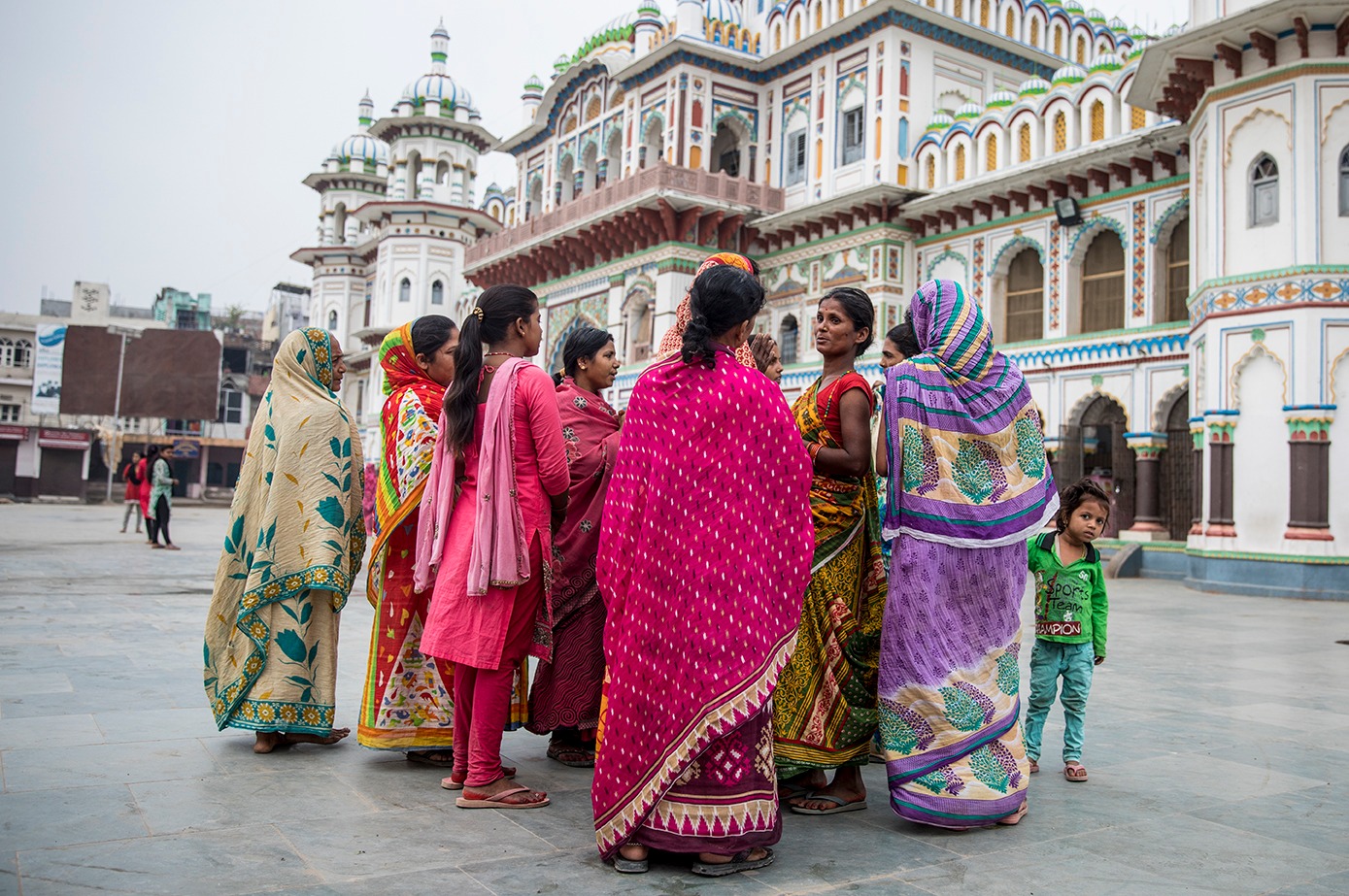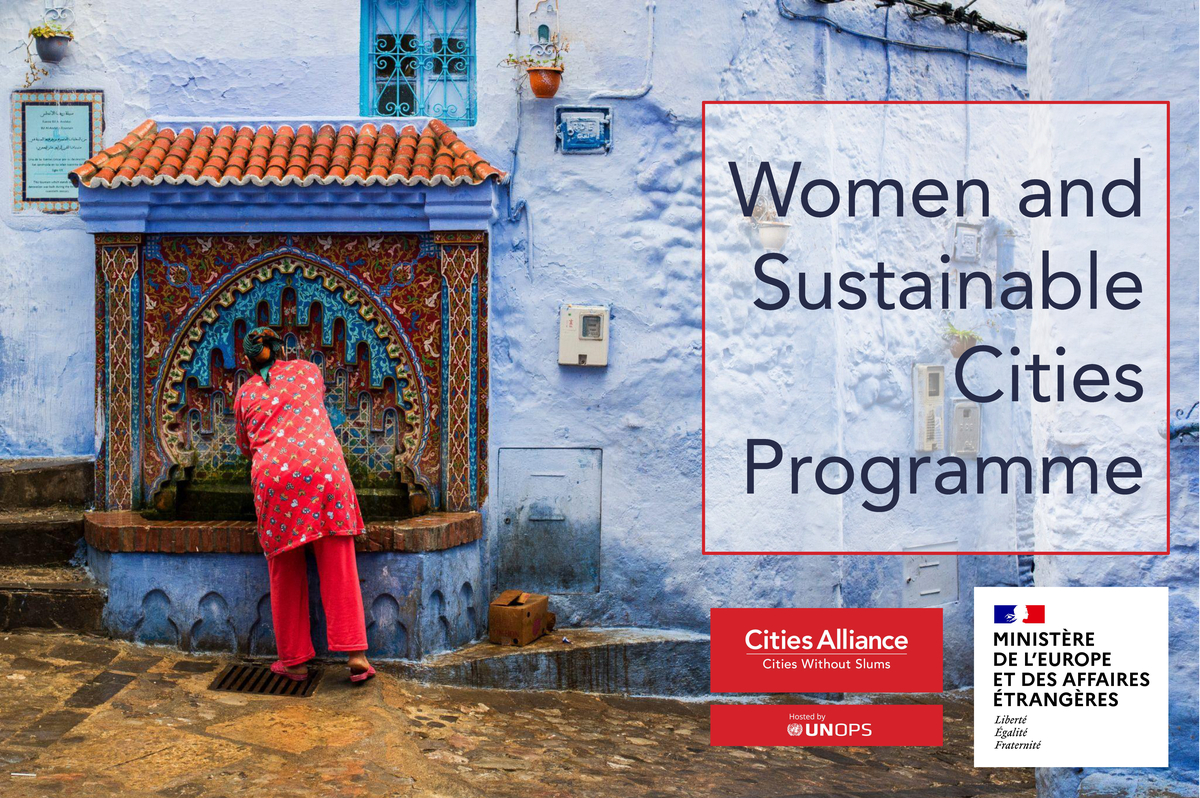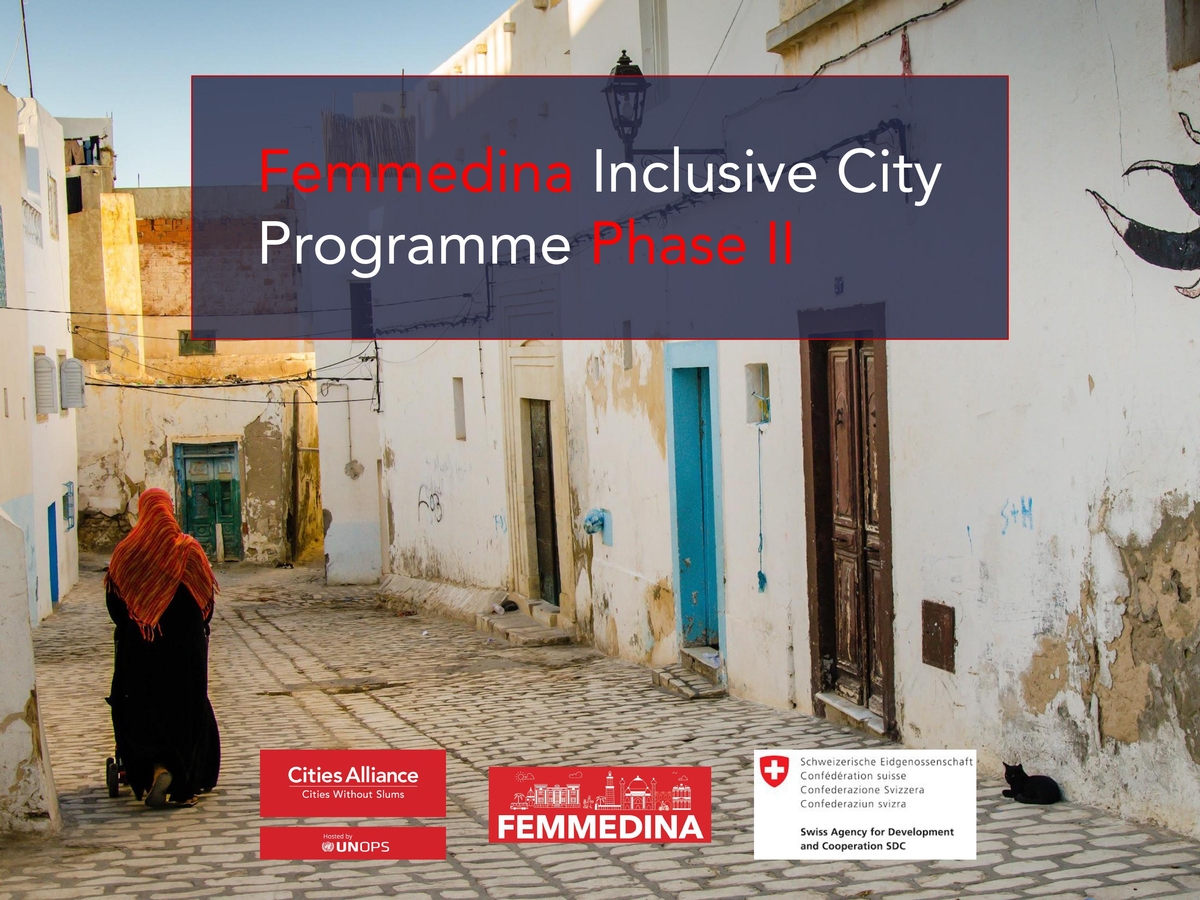Our Expertise and Projects
Cities Alliance supports national and local governments, communities, and women by driving urban initiatives that reduce gender inequalities and empower all women, specifically the most marginalized. The projects and initiatives implemented with the aim of empowering women focus on three main areas: the planning, implementation, and management of inclusive public spaces and urban infrastructure; the promotion of women’s leadership and participation in decision-making in cities, and the support to women-led climate adaptation actions in cities.
The projects and initiatives are implemented globally, with a specific focus on the Middle East and North Africa (MENA) region.
Ongoing Initiatives
Inclusive Public Spaces and Urban Infrastructure
A gender-sensitive approach to infrastructure development can promote equal access to urban services and opportunities and improve the socio-economic outlook of women, girls, and marginalized groups, which will ultimately improve the well-being of everyone in the city. For instance, vibrant, well-lit, and safe public spaces enhance women’s social, economic, and political participation, while at the same time providing opportunities for other underrepresented groups, such as children and the elderly.
- Gender-sensitive assessment and evaluation of women’s safety in public spaces;
- Participatory workshops to co-design interventions in public spaces;
- Rehabilitation of public spaces and buildings through spatial interventions and programming focused on the needs of women and girls;
- Co-design of women-led urban regeneration strategies.
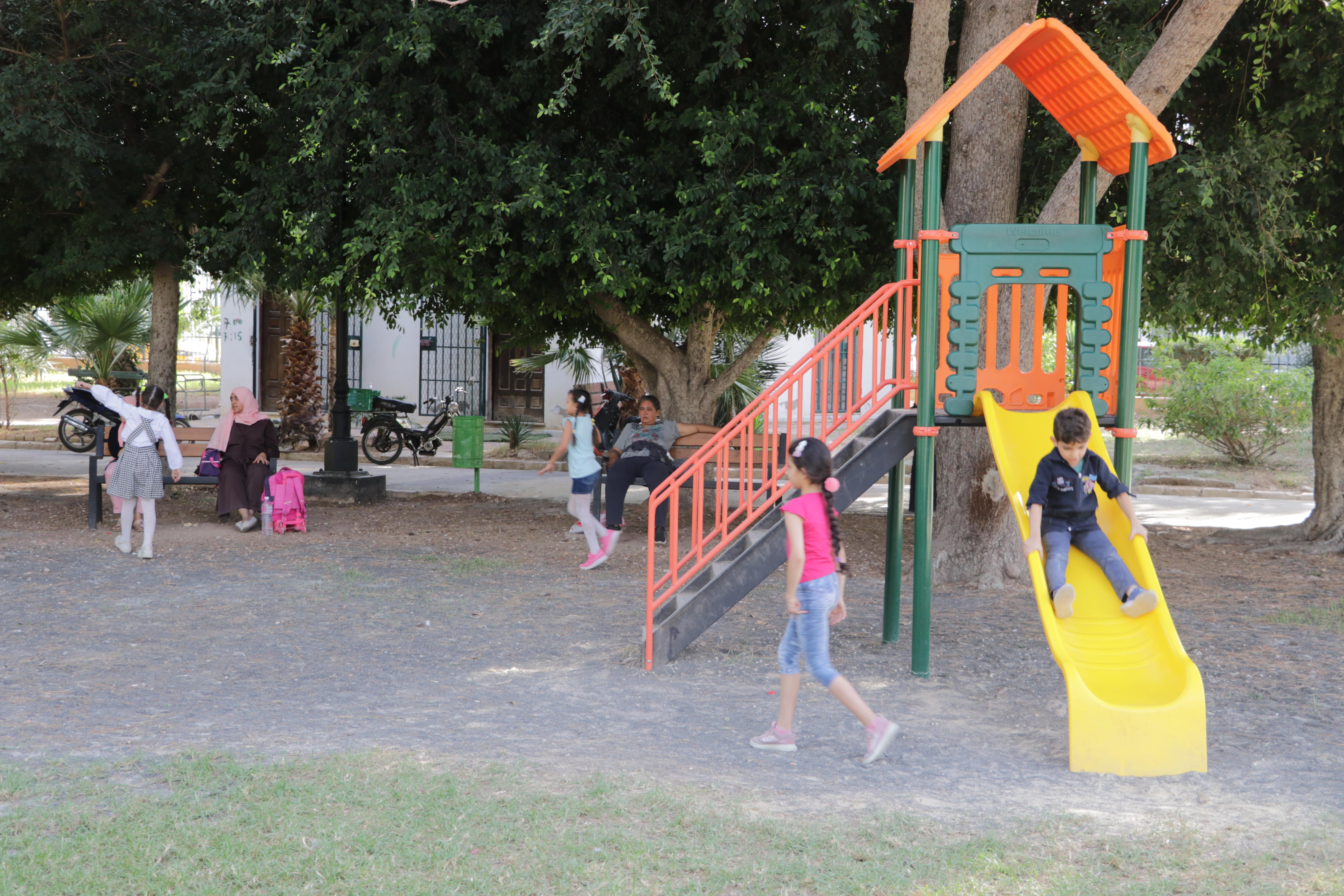
Related Projects
The Femmedina Inclusive City Programme in Tunis, implemented by Cities Alliance in cooperation with the Municipality of Tunis and funded by the United States Agency for International Development (USAID), aimed to create safer public spaces that respond to the needs of women in the city of Tunis, in order to enhance their economic, political, social
and cultural participation in the public life of the city and, in particular, in the districts of Medina Centrale, Bab Souika, Bab Bhar, and Sidi Bechir. In addition to rehabilitating urban spaces and enhancing their gender responsiveness, the project also aspired to institutionalize a participatory, gender-sensitive approach to urban policy-making and planning not only in the Medina of Tunis but also in other cities in the country.
As part of the City Development Strategy (CDS) of the Greater Monrovia Metropolitan Area, Cities Alliance organized a workshop gathering local stakeholders, with a focus on women organizations from informal communities, to share experiences, knowledge, and perceptions on the current engagement of women in the various dimensions of their environments. The resulting report Women Transforming Monrovia have informed the CDS as well as specific COVID-19 response actions in informal settlements. In response to women's needs expressed during the consultations, the Cities for Women and the Informality Global Program of Cities Alliance have built nine water kiosks in three informal settlements in Monrovia and Paynesville to ensure access to safe and reliable water supplies and sanitation.
Women’s Leadership and Participation in Decision-Making in Cities
Women have facilitated access to services and improved the lives of many in their communities through active citizenship at the grassroots level. Online tools and platforms have enabled them to organize, reach others, and disseminate critical information when face-to-face communication and movement are restricted. At a formal level, however, women are under-represented in political office due to a lack of income, education, and freedom, as well as gender divisions of labor. Only 13% of mayors in the world are women.
- Participatory diagnostics and tools to assess political, spatial, civic, and digital enablers or barriers to women’s and girls’ leadership;
- Digital literacy and leadership mentoring programmes for women and girls;
- Technical support to local authorities on participatory processes, e-governance, and dialogue facilitation to include women and girls.
Related Projects
In April 2022, as the war in Ukraine entered its third month, Cities Alliance, StreetNet International, and WIEGO launched a project to highlight the voices of Ukrainian women workers.
Between July 9 and September 19, 2022, 18 women who are directly impacted by conflict in Ukraine were interviewed. Of these, 15 were self-employed individual entrepreneurs (known as FOPs in Ukraine). Most earned income from small trading businesses, whether in public spaces or online or as home-based producers of goods or services. While the sample is small, the interviewees give voice to the experiences and traumas of women in this war and offer insight and ideas for rebuilding a better future.
Their stories, along with desk research, shaped the report Rebuilding with Women: Amplifying their voices in Ukraine’s recovery. The report is currently being used to advocate for gender-responsive recovery and reconstruction in Ukrainian cities as well as further women's participation and leadership in the decision-making related to the peace process.
Within the context of the Uganda Country Programme, the Cities for Women Programme organized a citywide laboratory in Kampala, in March 2021, with women from different sectors to assess their level of participation in city-making. The workshop sought to improve the gender awareness of city policymakers and local stakeholders, identify obstacles and enablers for women’s engagement in urban governance and planning, and promote women’s active engagement in city governance and planning. The Women Talking, Kampala Listening report provides recommendations for city policymakers and local stakeholders, including the need to improve housing, safety, and mobility for women in the city, along with measures to boost women’s political participation and strengthen their role in the economy. The results of this engagement have contributed to informing Cities Alliance projects in Uganda, including the KJE “No One Worse Off” project, the Cities and Migration Programme, and specific COVID-19 response actions in informal settlements — thus supporting the country in meeting its 2040 Vision goals.
In the framework of the post-earthquake and post-COVID recovery, UNOPS Nepal and Cities Alliance planned a series of laboratories in Nepal bringing national and local institutions, women-led organizations, and other key stakeholders to collectively explore potential ideas for women empowerment in urban planning and policy and to think together about the city they want in the future. The report Kathmandu: A City for Women collects women’s perceptions and experiences in the city (including accessibility, political representation, and use of public spaces) and highlights the need to take gender aspects into account in the design of public services. The post-earthquake and post-COVID recovery provides an opportunity to apply the Women Engagement in Cities approach and revives urban spaces and policies with gender inclusion, addressing the needs of all people, irrespective of age, gender or abilities.
With the assistance of the African Development Bank, UNOPS is supporting the Government of The Gambia to create a Digital Urban Plan for its capital city and surroundings, the Greater Banjul Area. The Urban Plan will drive the city's development for the next 20 years in terms of land use and infrastructure. Cities Alliance is supporting the Greater Banjul 2040 plan by providing guidance, tools, and technical assistance to make the Urban Plan a tool for women's social and economic empowerment.
Cities Alliance and UNOPS Gambia have organized a series of online and offline engagements with local stakeholders to include a gender perspective and women’s demands in city policies and planning. As of result of these engagements and workshops, the report Planning For Inclusive Greater Banjul has been produced to inform the Digital Urban Plan due in July 2021.
The project "Improving gender-mainstreaming within local public policies" in the cities of Béja and Médenine, led by the Aswat Nissa in partnership with Cities Alliance and Heinrich-Böll Stiftung, aimed to reduce gender inequalities in a Tunisian context marked by decentralization of powers. The project included the production of policy briefs, gender-sensitive budget analysis, and training sessions in the two municipalities.
Women-Led Climate Adaptation in Cities
Climate change affects women and men differently. Women and girls bear the brunt of environmental, economic, and social shocks, as they are often the first responders when disaster strikes and make important decisions about energy and waste at home. Many national climate action and disaster preparedness plans, however, do not account for the gendered components of climate risks.
- Data collection on gender-related impacts of climate on selected cities, communities, or neighborhoods;
- Support to the definition of gender-sensitive climate adaptation plans and/or city resilience strategies at the city level;
- Construction of small-scale green infrastructures, such as off-grid solar-voltaic, water kiosks, and green spaces.
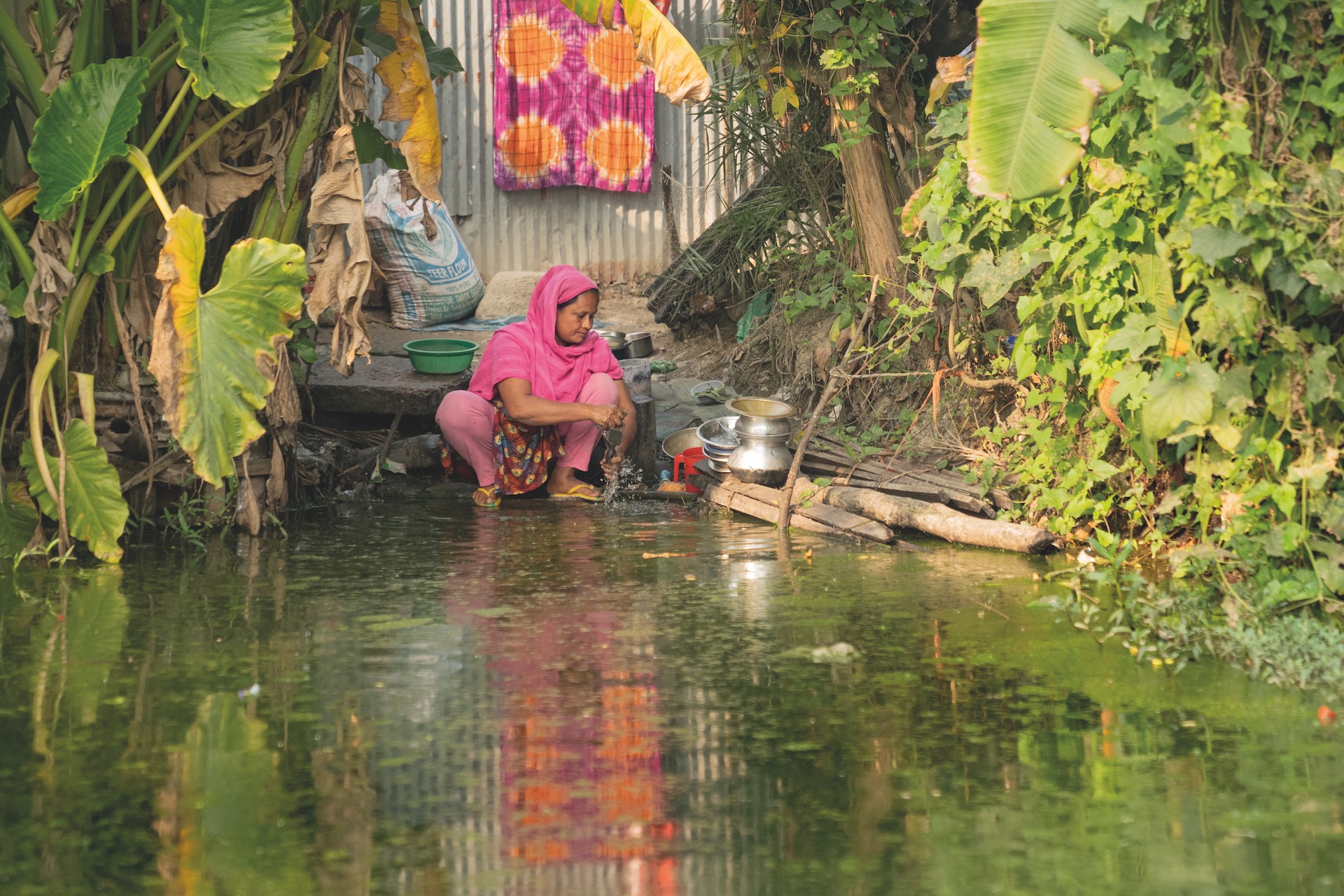
Related Projects
Cities Alliance supported the women-led organization Badabon Sangho in Bangladesh to improve the resilience of two coastal communities, through learning and awareness sessions, data analysis, and city mapping.
Cities Alliance has supported the organization Action for Women and Children Concern (AWCC) to develop an early warning system to increase resilience to climate-induced shocks for 55,000 vulnerable people in the Marka district of the Lower Shabelle region in Somalia.

